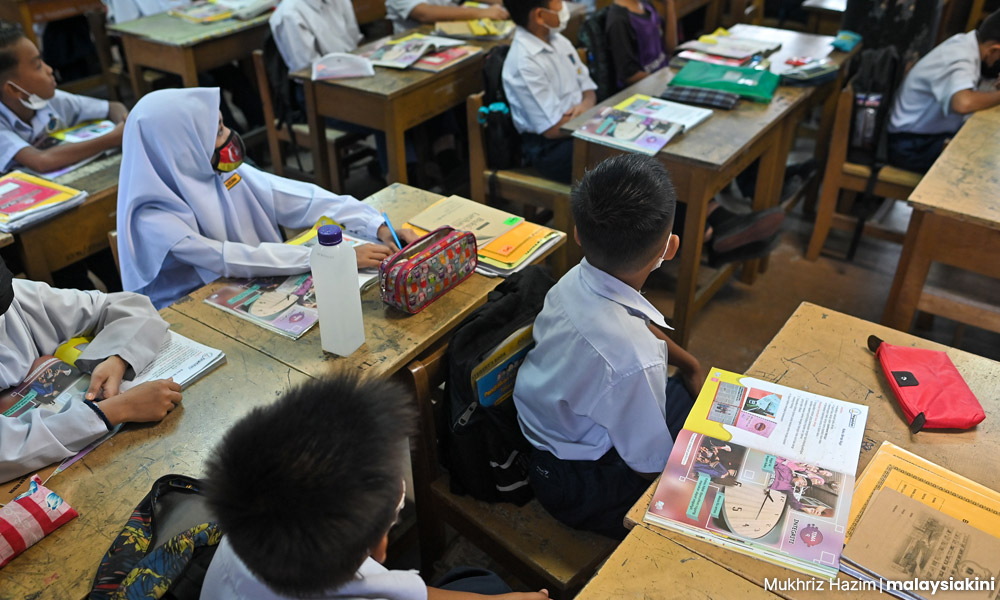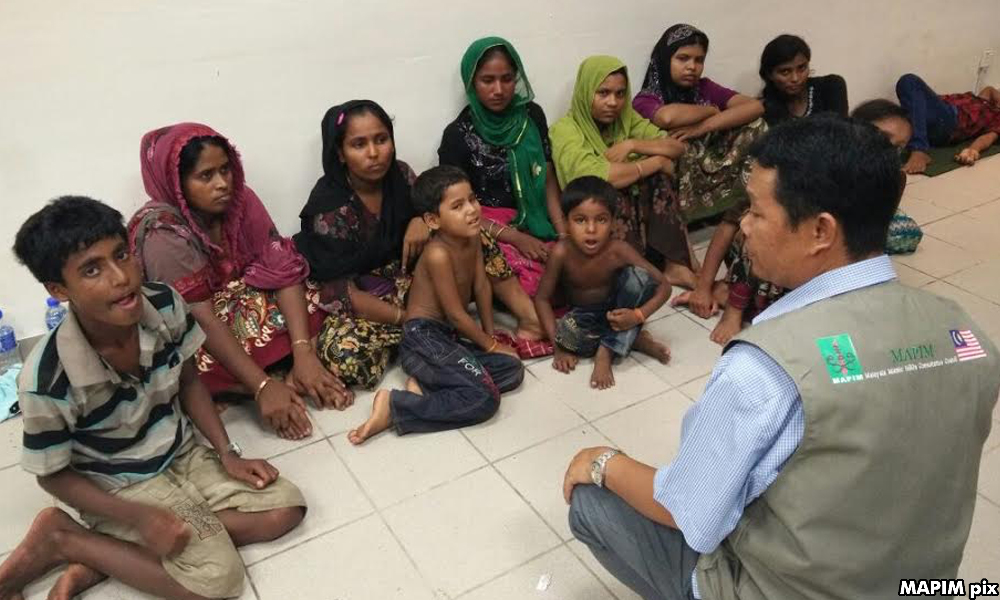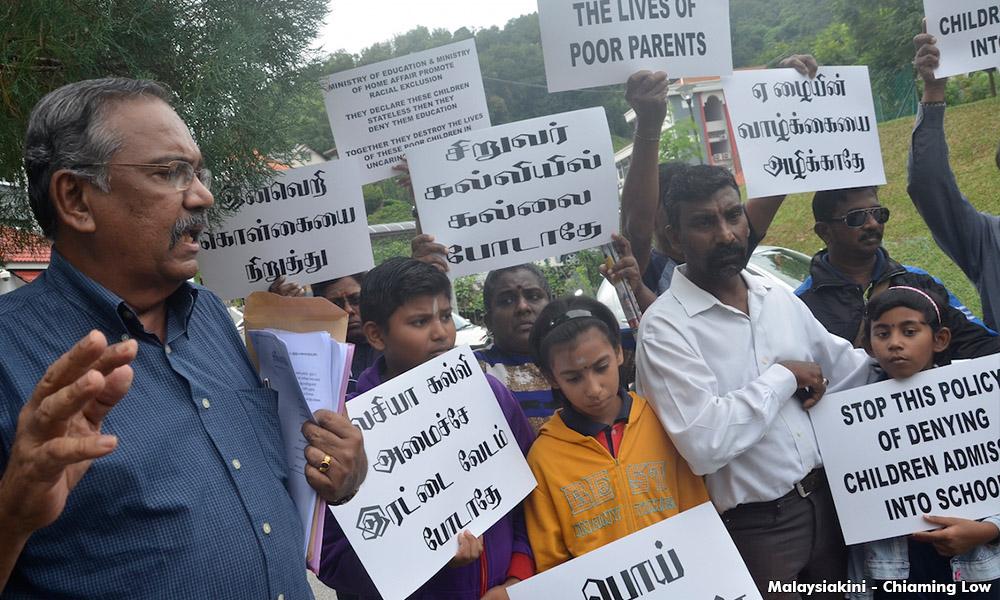LETTER | Many of us have entered 2023 with a glimmer of hope, a feeling that the nation has “turned a corner” for the better. The hope comes from the election of a new government that we have placed our trust in - to bring us back to a better place, a place where every person in the country is respected and included.
On human rights, especially regarding the care and support of children, the past few decades have seen our country slip further and further into darkness.
We cannot be considered a developed nation if we continue to deny all children the right to education as enshrined in the Convention on the Rights of the Child. Malaysia acceded to the Convention on the Rights of the Child on Feb 17, 1995. We have had nearly 30 years to fix key issues on children’s rights.
It is critical for the government to reverse policies that damage children, as well as introduce related institutional reforms as quickly as possible.

The following are areas where we need to reform policy and regain our humanity where children are concerned.
No child should be denied education
We have many children who are currently denied basic education. A child without access to education is imprisoned in a life-time poverty trap - a tragedy for children and our shame as a nation.
All children, whether migrant, refugee, stateless, of a different nationality or disabled, must be provided access to primary and secondary education. Yet, Malaysia’s “Zero Reject Policy” is viewed by the Ministry of Education and education officers on the ground as only applicable to Malaysians.
Institutional and policy reform required:
Introduce and enforce the implementation of a mandatory universal education access policy for all children regardless of their status.
Children should not be treated as adults and must be protected
The Convention on the Rights of the Child defines a child as “every human being below the age of 18 years”.
Yet, in the nearly 30 years since Malaysia acceded to the Convention on the Rights of the Child, there remain many policies and laws that fail to respect children’s rights. Below are four examples:
1. The Children and Young Persons (Employment) Act 1966 (Act 350) defines a child as a person under 14 years of age, permitting those aged 15 and above to work with some conditions. This definition, not harmonised with that in the Child Act 2001, deprives Malaysia of a key means of protecting children from being exploited as child labour.
2. Children aged 12 and above are admitted to adult wards and cared for by health professionals who are not trained in looking after children. It is traumatic for children to be bedded next to ill adults. The Ministry of Health (MOH) is long overdue in recognising that those aged 12 to17 years are children and should receive age-appropriate, targeted in - and out-patient services.
3. Older children and adolescents are sometimes incarcerated in adult prisons and brought to court handcuffed, along with adult inmates.
4. Migrant/refugee children are held in detention, often in sub-optimal conditions; many are separated from their parents.
The list goes on.
Institutional and policy reforms required:
1. Harmonise all Malaysian legislation and policies with the Convention on the Rights of the Child.
2. Take the requisite actions that ensure that all ministries and government entities at all levels recognise the Convention on the Rights of the Child and the Child Act 2001 definition of a child and accord all children relevant and age-appropriate Convention on the Rights of the Child-compliant protection, support and services.
3. Remove all reservations to the Convention on the Rights of the Child.
4. Change urgently MOH policy to:
(a) Address the need of sick adolescents to be placed in age-appropriate, child-friendly health facilities and under the care of those trained to meet their needs.
(b) Establish in all hospitals adolescent wards and clinics staffed by clinicians and other personnel trained in their care.
Routine healthcare for migrant, refugee and stateless children
There has been long-standing neglect and lack of provision of routine primary healthcare for migrant, refugee and stateless children. For these children, the basic rights to healthcare, as enshrined in the Convention on the Rights of the Child, have not yet been upheld by any government in Malaysia.
These children do not receive routine primary immunisation, growth and developmental monitoring, and health advice/education. No family should have to pay for basic life-saving immunisation of its child. Provision of primary immunisation to migrant, refugee and stateless children protects not only them but all Malaysian children via herd immunity.

Pregnant women from these groups do not receive routine antenatal care and are known to deliver in extremely unsafe conditions, with adverse mother-child outcomes.
The prospects are even worse regarding healthcare for children in these groups who require hospitalisation or specialist attention. While admission is possible for life-threatening illnesses, guardians still have to pay high fees for hospitalisation, procedures and medication, putting such healthcare out of the reach of the majority. Some who are admitted are denied discharge until their bills can be settled. Others are reported to the Immigration Department and transferred to detention facilities.
It is an embarrassment to talk about our health services as among the best in the world when we retain many barriers to stop vulnerable families from accessing basic healthcare for their children. Mortality rates among migrant, refugee and stateless children aged under five in Malaysia are 15 to 25 times that of the national rate and are comparable to those in poor Third World countries.
Institutional and policy reforms required:
1. Enact legal provisions that guarantee all children living in Malaysia the right to health care, regardless of their legal status - in line with the Convention on the Rights of the Child (article 24), and our Child Act 2001.
2. Remove prohibitive and expensive medical treatment fees/charges levied on children who are migrants, refugees or stateless.
3. Protect migrant, refugee and stateless children and their families from arrest and detention when they seek healthcare at hospitals and clinics.
4. Join as a signatory to and ratify the convention relating to the status of refugees and its optional protocol.
5. Join as a signatory to and ratify the International Convention on the Protection of the Rights of All Migrant Workers and Members of Their Families.
No child should be stateless and left in poverty
No child should be left without an identity. Many children, especially in Sabah and Sarawak, remain stateless with no access to health, education or a meaningful future. Some of these children are born into families that have lived in Malaysia for generations but have no official documents. These children are not supported by government services and their poverty is not addressed as they are not recognised as Malaysians, that is, “not our children”. Regardless of their origin, children must not be treated in this way. Article 7 of the Convention on the Rights of the Child states:
“The child shall be registered immediately after birth and shall have the right from birth to a name, the right to acquire a nationality and, as far as possible, the right to know and be cared for by his or her parents.”

Institutional and policy reform required:
Make a concerted effort to end the statelessness of children in Malaysia and not allow it to persist.
This article is not exhaustive in its scope. There are other areas that need attention for us to regain our humanity as a nation. Some areas have been neglected for a long time and require more concerted effort. Taking a social determinant approach to supporting children’s well-being is an optimal way forward.
It is important that Malaysia leaves no child behind.
We need to give every child in our country the best possible start in life.
We look to and trust this government to urgently institute reforms to protect, support and nourish all children in Malaysia.
Dr Amar-Singh HSS, consultant paediatrician, child-disability activist, Advisor, National Early Childhood Intervention Council (NECIC).
Yuenwah San, activist, care partner, and honorary senior adviser (disability inclusion), Social Development Division, United Nations Economic and Social Commission for Asia and the Pacific (ESCAP).

